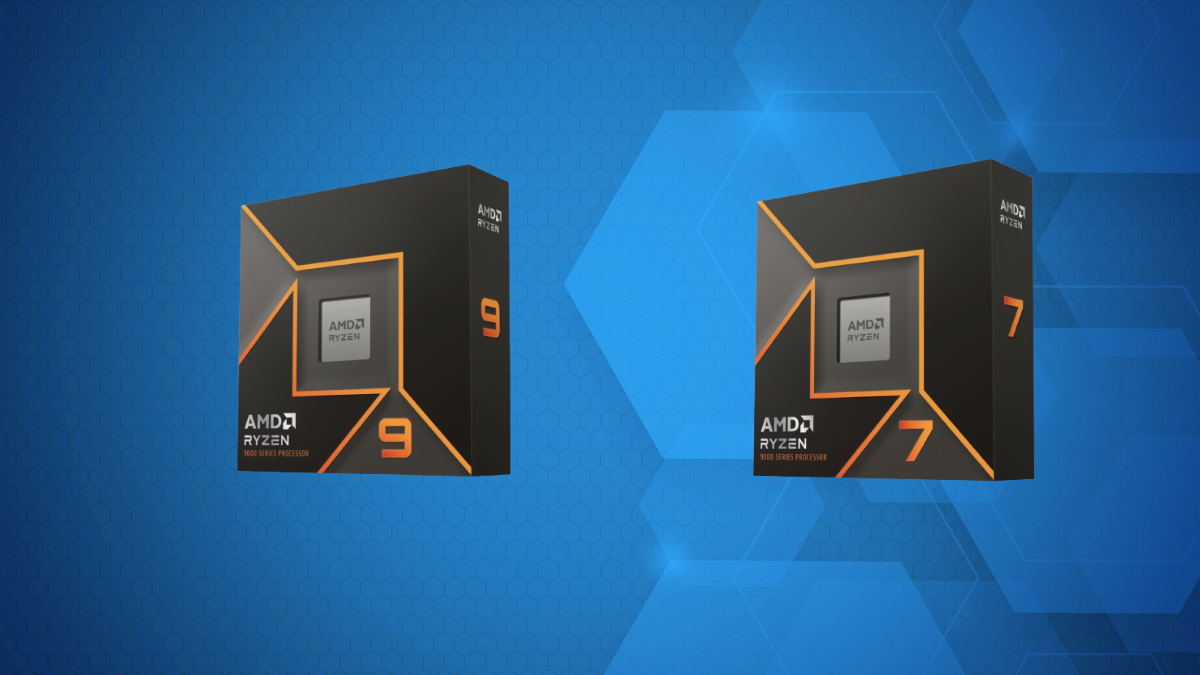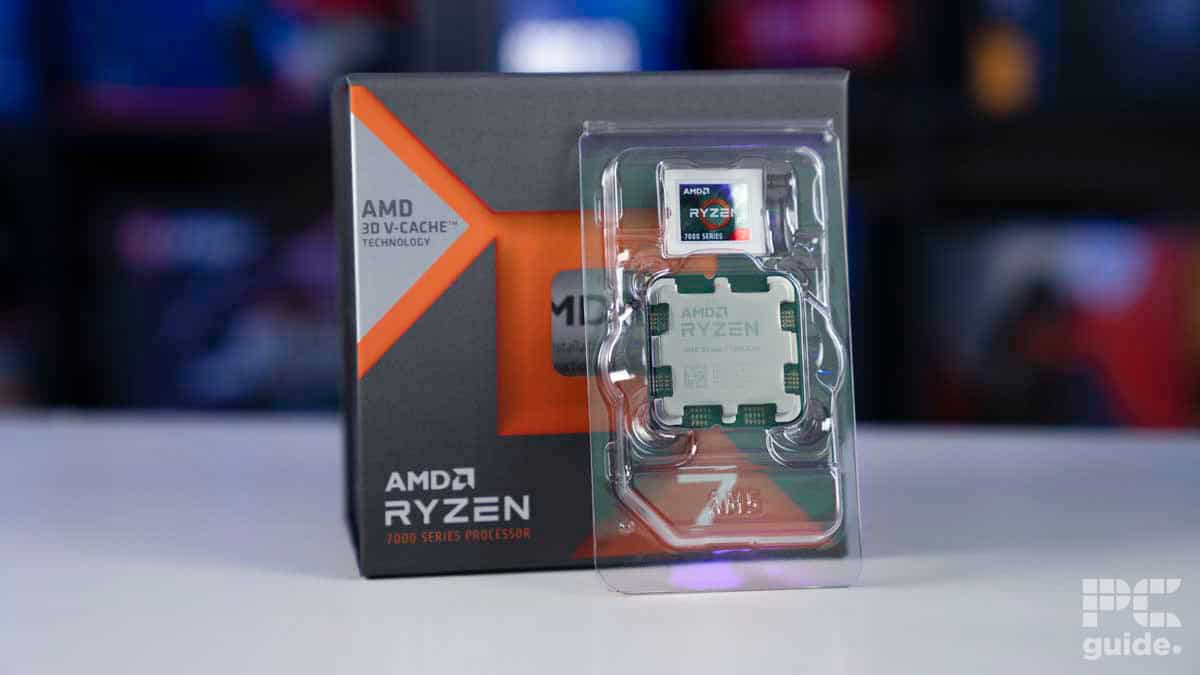Ryzen 9 9950X3D vs. Ryzen 7 7800X3D specs comparison – how do they differ?

Table of Contents
The new Ryzen 9000X3D processors have been announced, and they seem to have taken the 3D V-Cache technology to the next level with a significant increase in the L3 cache capacity. In addition, AMD boasts that the Ryzen 9 9950X3D is the world's best gaming and content creation processor, so we had to see how it stacks up against another legendary CPU.
We reviewed the Ryzen 7 7800X3D a while ago, and it seriously impressed. In fact, it was arguably the gaming CPU king before the 7 9800X3D strolled onto the scene. Since we haven’t got our hands on the Ryzen 9 9950X3D just yet, we’re using what we know from AMD’s CES 2025 presentation to weigh up the differences between the two. We will, of course, be returning to this article and updating it with more in-depth information once we put the 9 9950X3D through its paces in our testing lab.
Let’s take a closer look at what the key differences are between the two processors.
Spec comparison
We’ve listed their specifications below to see the hardware difference between the two processors.
| CPU | Ryzen 9 9950X3D | Ryzen 7 7800X3D |
| Architecture | Zen 5 | Zen 4 |
| Socket | AM5 | AM5 |
| Process | TSMC 4nm FinFET | TSMC 5nm FinFET |
| Cores | 16 | 8 |
| Threads | 12 | 16 |
| Base clock speed | 4.3 GHz | 4.2 GHz |
| Boost clock speed | 5.7 GHz | 5 GHz |
| L3 cache | 144 MB | 96 MB |
| TDP | 170W | 120W |
| Integrated graphics | AMD Radeon Graphics | AMD Radeon Graphics |
These processors come from two different generations and spots in the performance hierarchy, and they differ greatly. The main difference is the architecture, followed by the L3 cache size, core and thread count, and clock speed. We'll dive deeper into these differences to see how they'll affect the outcome of this comparison.
Architecture
The most significant difference between the Ryzen 9 9950X and the Ryzen 7 7800X3D is the architecture. The former is based on the new Zen 5 architecture, while the latter is based on the Zen 4 architecture.
This means there is also a difference in the CPU processors, as the 9950X3D uses 4nm transistors while the 7800X3D uses 5nm. While a difference of 1nm might not seem like a lot, in reality, it is. Also, since the 9950X3D has double the cores, it can fit more transistors on the CPU die, meaning it should have significantly better performance and efficiency. So, the 7800X3D can't keep up with the 9950X3D in this domain.
Cores and threads
The Ryzen 9 9950X3D has 16 cores and 32 threads, while the Ryzen 7 7800X3D has 8 cores and 16 threads. So, the 9950X3D has double the cores and threads, which puts it in a league of its own.
While the 7800X3D is no slouch when it comes to gaming, the 9950X3D has the hardware to handle resource-intensive applications and tasks much better. So, both chips have their uses, and depending on your budget and the tasks at hand, both are solid options for gaming, but for productivity, the 9950X3D takes the cake.
L3 cache
The most crucial difference between these processors is the increase in the L3 cache capacity for the Ryzen 9 9950X3D. The 9950X3D has a 144 MB L3 cache, while the 7800X3D has a 96 MB L3 cache. This is a difference of 48 MB, which is massive.
To give you an idea of the CPUs’ differences, we'll leverage the synthetic testing from our 9950X and 7800X3D reviews. The Ryzen 7 7800X3D managed 643 points in the CPU-Z single-core test, while the 9950X, with 64MB L3 cache, managed 872 points.
There is already a huge performance gap, but with the added L3 cache, we can expect the 9950X3D to steamroll the 7800X3D in gaming, especially since the Ryzen 9000X3D processors can be overclocked.
Ryzen 9 9950X3D expected price
We'll have to wait just a bit longer before we know the official price of the Ryzen 9 9950X3D. That being said, we can make an educated guess based on the previous launches and pricing history.
The Ryzen 7 7950X and 7950X3D launched at $699, while the 9950X was priced at $649. Based on its improvements, we're expecting the Ryzen 9 9950X3D to be priced around $649 to $699.
Which processor should you get?
The Ryzen 7 7800X3D has recently only lost its title of the best gaming processor, but that should tell you everything you need to know about its performance, as other options couldn't match or outperform it in gaming.
That being said, the Ryzen 9 9950X3D is a beast in its league and features the new architecture, smaller process nodes, and a much larger L3 cache. Given the difference in their hardware, there is no direct comparison between these processors.
So, the processor that is best for you ultimately depends on your budget and usage. You'll be able to use the best AM5 motherboards with these CPUs, and the 7800X3D can be paired with powerful GPUs without causing bottleneck issues.
This means that if you're short on finances, the 7800X3D is a solid option; however, if you want the best of the best and can afford it, then the 9950X3D should ensure that your PC can handle even the most graphically demanding titles for years to come and have excellent productivity, something that wasn't expected of X3D processors before.

